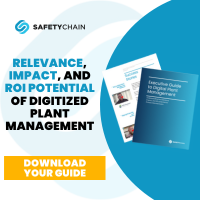A Look into FSMA Compliance: Food Fraud
While there are many topics surrounding FSMA compliance, food fraud is one which has received significant attention. While FSMA’s Intentional Adulteration (IA) rule aims to combat the tampering of the food supply to inflict wide-scale public harm, it also has sections of the Preventive Controls Rule for Human Food which apply specifically to food fraud. Let’s take a look at how food companies can develop a robust food defense plan to address all types of food fraud.
What is Food Fraud?
Food fraud is the illegal deception of food for economic gain, also known as economically motivated adulteration (EMA). While FSMA does not pinpoint specific examples of economically motivated food hazards, Food Safety Magazine explains that the general types of food fraud are theft, tampering, simulation, adulterant substances, diversion or gray market, and intellectual property rights counterfeiting.
Preventing against food fraud is essential to FSMA compliance and avoiding serious legal ramifications. The FDA has indicated that it will focus on criminal prosecution for both responsible individuals and the company as a whole.
Building a Food Defense Plan
To satisfy both the upcoming IA Rule, which has compliance dates beginning in July of 2019, as well as the Preventive Controls rule for Human Food, companies should implement the following key steps to build a solid food defense plan:
Perform a vulnerability assessment
Implement mitigation strategies to prevent or significantly minimize the appearance and potential impact of food fraud
Continuously monitor for program performance
Implement corrective actions as needed
Verify the program is working by performing routine reanalysis
Document all of the above with clear, accessible records
Additionally, companies should pay special attention to the four key activity types which the FDA has identified as posing the greatest potential risks:
Bulk liquid receiving and loading
Liquid storage and handling
Secondary ingredient handling
Mixing and similar activities
As with any aspect of FSMA, effective record keeping practices are critical. As the saying goes, “If you didn’t document it, it’s as if you never did it.”



